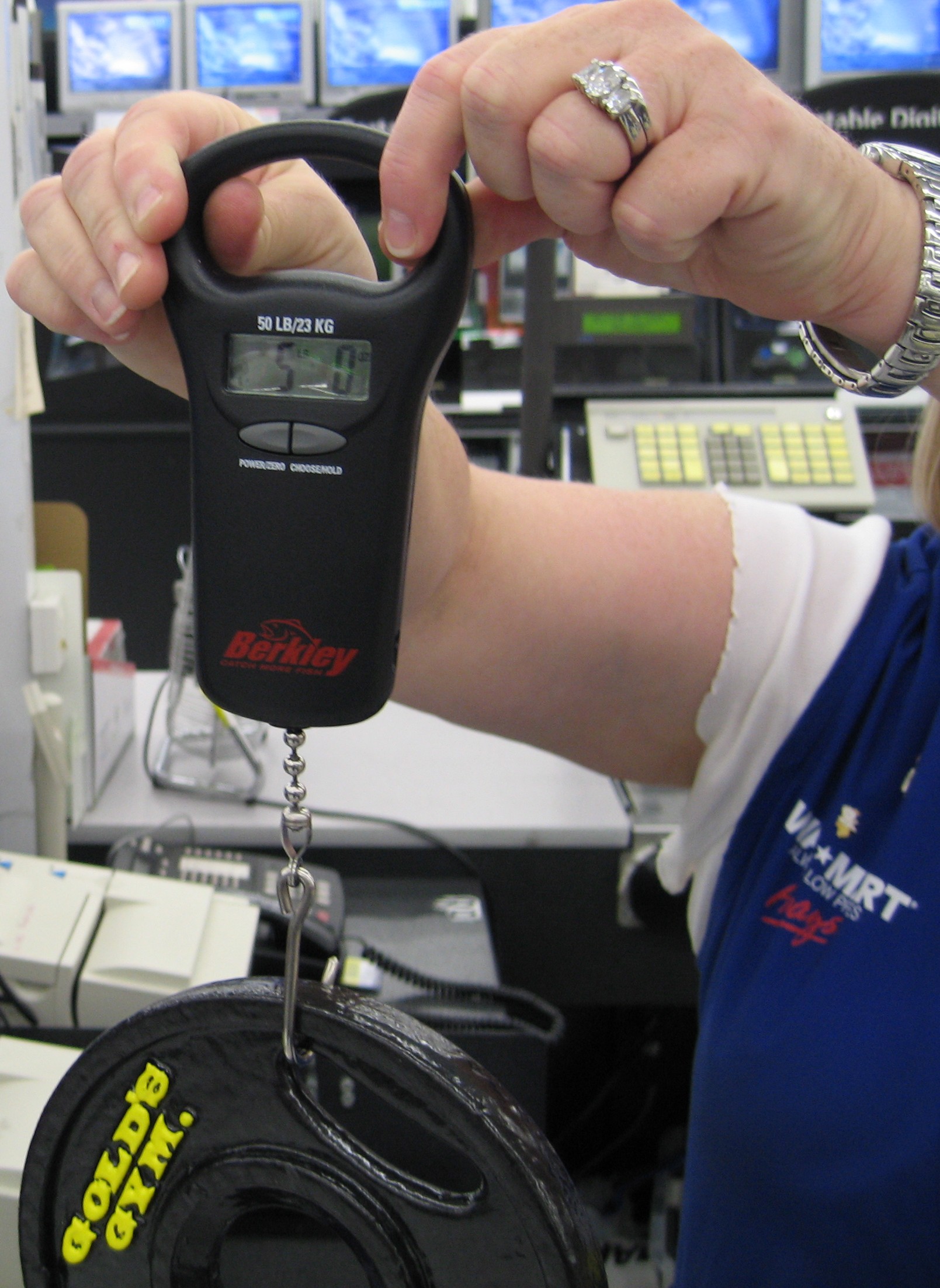I’ve gotten a lot of questions regarding the weight and cost for vegetable oil, (particularly bulk vegetable oil), corn oil, and the like, so I’ve decided to put a little more effort into the research and firm up the numbers. In order to get the widest range of subject matter, I took a trip to my local Wal-Mart to take some measurements.
This post details the price and weight by volume of bulk vegetable and corn oil (our primary subject matter) as well as the price and weight by volume of motor oil and gasoline.
Since I’m taking all of the measurements in-store I don’t have the benefit of being able to measure the liquid by itself, or to weigh the empty containers for reference. Instead these numbers are intended to give veggie-oil fuel enthusiasts a ballpark figure for purchasing fuel from their local superstore.

The first stop on the tour was the sporting goods section where I picked up a five pound weight and a 25 pound fish scale. I used the weight to calibrate both the produce scale and fish scale before taking any measurements. Thanks to Emma for helping out!

With tools in hand I headed over to the automotive section to pick up a little motor oil and a one gallon gas can. I grabbed a one quart bottle of Havoline 5W30 and a five quart jug of the same.


| Havoline 5W30 | 1 quart | $1.97/unit | $7.88/gallon |
| Havoline 5W30 | 5 quart | $8.95/unit | $7.15/gallon |
After that, I moved to the food section of the store and picked out a one gallon jug of Great Value brand vegetable oil and a 1 gallon container of corn oil.


| Bulk Vegetable Oil | 1 gallon | $4.57/unit | $4.57/gallon |
| Bulk Corn Oil | 1 gallon | $4.96/unit | $4.96/gallon |


| CWP Veggie Oil | 48oz | $1.68/unit | $4.48/gallon |
| Crisco Canola Oil | 48oz | $1.84/unit | $4.91/gallon |
All of these I took over to the produce section and weighed them individually – again using the 5 lb. weight to ensure the scales were accurate.





| Products | Amount | Total | Ounces | Weight of a gallon |
| Vegetable Oil | 1 gallon | 8 pounds | 128 ounces | 8lbs |
| Corn Oil | 1 gallon | 8 pounds | 128 ounces | 8lbs |
| Motor Oil | 5 quarts | 9 pounds, 7 ounces | 151 ounces | 7.55lbs |
| Motor Oil | 1 quart | 1 pound, 15 ounces | 31 ounces | 7.75lbs |
After leaving Walmart I went to their gas station with my 1 gallon gas can. Using the fish scale, I was able to measure the gas can both empty and full.


| Empty Gas Can | 13 oz |
| Gas Can with 1.046 gallons | 7 lbs, 3 oz (115 ounces) |
| One Gallon of Gas weighs | 6.10 pounds (97.52 ounces) |
The results of this experiment were very interesting. I was surprised to learn that a gallon of gas weighs so much less than a gallon of vegetable or corn oil.





